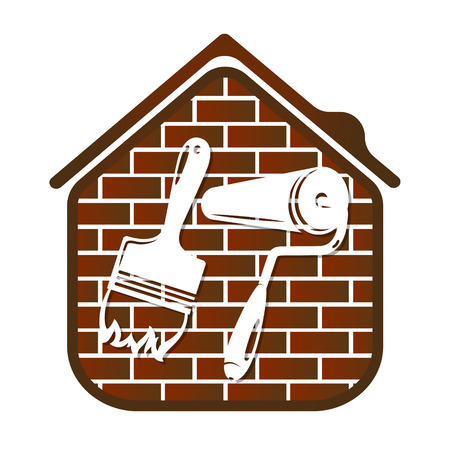1. Why Convert Your Garage? Exploring the Benefits
In 2025, more and more homeowners across the U.S. are looking at their garages as untapped potential for extra space and added value. With rising housing costs and limited options for affordable expansion, garage conversions have become a popular solution. Let’s break down the key reasons why converting your garage might be the right move this year.
Added Living Space Without Major Construction
One of the biggest advantages of converting a garage is gaining usable square footage without building a full home addition. Whether it’s for an extra bedroom, home office, gym, or guest suite, a garage can often be transformed faster and with fewer permits compared to new construction.
Increased Property Value
A well-done garage conversion can significantly boost your home’s market appeal and resale value—especially in urban areas where space is limited. Buyers today are looking for flexible living spaces that meet modern needs like remote work or multi-generational living arrangements.
Affordable Housing Option
Garage conversions are also seen as a cost-effective way to create an accessory dwelling unit (ADU), which can serve as a rental unit or provide independent living space for family members. This makes it easier to generate passive income or support loved ones while avoiding the high cost of purchasing separate property.
Common Uses for Converted Garages
| Use | Description |
|---|---|
| Home Office | A quiet, dedicated workspace separate from main living areas |
| Guest Suite | Comfortable accommodations for visiting friends or family |
| Rental Unit (ADU) | An income-producing studio or one-bedroom apartment |
| Home Gym | A private fitness area tailored to your needs |
| Entertainment Room | A media room or game space for relaxing at home |
Why 2025 Is the Right Time to Convert Your Garage
The demand for flexible housing solutions continues to grow in 2025, and cities are becoming more open to zoning changes and permits for ADUs. Combined with ongoing trends like remote work and multigenerational households, now is an ideal time to consider maximizing your garage’s potential.
2. Understanding 2025 Garage Conversion Costs
Planning to convert your garage in 2025? Knowing how much it might cost is a great place to start. Whether you’re turning your garage into a home office, guest suite, or rental unit, understanding the breakdown of expenses will help you budget smarter. Let’s look at what homeowners across the U.S. can expect when it comes to garage conversion costs this year.
Average National Costs for Garage Conversions in 2025
The total cost of a garage conversion can vary widely depending on the size of the space, level of customization, and where you live. On average, here’s what most homeowners are spending:
| Cost Category | Average Cost (National) |
|---|---|
| Labor | $7,000 – $15,000 |
| Materials | $8,000 – $20,000 |
| Permits & Inspections | $500 – $2,000 |
| Total Estimated Cost | $15,500 – $37,000+ |
Labor Costs
Labor typically makes up about 30–40% of the total project cost. This includes hiring contractors such as electricians, plumbers (if youre adding a bathroom or kitchenette), framers, drywall installers, and painters.
Material Costs
Your material costs will vary based on finishes and functionality. Basic conversions may only need insulation, drywall, flooring, and paint. More complex projects with plumbing or high-end finishes will increase expenses significantly.
Permits and Inspections
Most cities require permits for garage conversions since youre changing the use of the space. Fees depend on local regulations but typically range from $500 to $2,000. You may also need zoning approval or an inspection during and after construction.
Location-Based Cost Variations
Where you live plays a big role in how much your garage conversion will cost. Labor rates and permit fees tend to be higher in urban areas or regions with strict building codes. Here’s a quick look at regional differences:
| Region | Estimated Total Cost Range |
|---|---|
| West Coast (e.g., California) | $25,000 – $50,000+ |
| Northeast (e.g., New York) | $20,000 – $45,000+ |
| Midwest (e.g., Ohio) | $15,000 – $30,000+ |
| South (e.g., Texas) | $17,000 – $32,000+ |
Tip:
If youre aiming for a budget-friendly conversion, consider keeping the existing layout and avoiding major plumbing work.

3. Key Factors That Influence Your Budget
When planning a garage conversion in 2025, several key factors will directly impact how much you’ll need to budget. From the size of your garage to how you plan to use the new space, each decision can significantly affect costs. Let’s break down the major cost drivers so you can better estimate your project expenses.
Garage Size
The larger your garage, the more materials and labor are required, which naturally increases the overall cost. A single-car garage is cheaper to convert than a two- or three-car garage simply because theres less square footage to work with.
| Garage Size | Average Conversion Cost (2025 Estimate) |
|---|---|
| Single-Car Garage (approx. 240 sq ft) | $20,000 – $35,000 |
| Two-Car Garage (approx. 400-500 sq ft) | $30,000 – $60,000 |
| Three-Car Garage (600+ sq ft) | $45,000 – $80,000+ |
Desired Use of Space
Your intended use for the converted space plays a big role in determining your budget. For example, turning your garage into a simple home office is typically less expensive than creating a fully equipped guest suite or rental unit with plumbing and kitchen appliances.
| Intended Use | Estimated Cost Range |
|---|---|
| Home Office or Gym | $15,000 – $30,000 |
| Guest Room or Bedroom | $25,000 – $50,000 |
| Studio Apartment (with kitchen & bathroom) | $40,000 – $100,000+ |
Structural Changes
If your conversion requires major structural changes—like raising the floor level, adding windows or doors, or reinforcing walls—these upgrades will add to your total cost. Also, garages typically lack insulation and HVAC systems, which means additional investment for year-round comfort.
Common Structural Modifications:
- Installing insulation and drywall: $1.50 – $3 per sq ft
- Adding new windows or doors: $1,200 – $5,000 each depending on size and type
- Upgrading electrical systems: $1,500 – $4,500+
- Plumbing installation (if needed): $2,000 – $10,000+
- HVAC extension or installation: $2,500 – $7,500+
Local Building Codes and Permits
Your city or county may have specific codes that regulate what you can do with a garage conversion. Permit fees and code compliance costs vary widely based on location. In some areas, converting a garage into a living space may require zoning approval or adherence to ADU (Accessory Dwelling Unit) standards.
Typical Costs for Permits & Inspections:
- Building permit: $500 – $2,500+
- Zoning review or ADU application: Varies by city; can range from $200 to over $5,000 in high-demand areas like California or New York
- Required inspections: Included in permit fees but may incur extra charges if re-inspections are needed
Understanding these key factors will help you make informed decisions about your garage conversion project and avoid unexpected expenses as you move forward.
4. Permits, Codes, and Legal Considerations
If youre planning a garage conversion in 2025, one of the most important steps is making sure youre following your local laws and regulations. Every city or county in the U.S. has its own zoning rules, permit requirements, and inspection processes. Skipping these could lead to fines, delays, or even having to undo the work youve done.
Understanding Zoning Laws
Zoning laws determine how a property can be used—for example, whether its residential, commercial, or mixed-use. Before converting your garage into a living space, check with your local planning department to make sure this type of renovation is allowed in your area. Some zones may not permit additional dwelling units (ADUs) or may have restrictions on short-term rentals if thats your goal.
Permit Requirements
In most places, youll need permits before starting a garage conversion. These help ensure that all work meets safety standards and building codes. Common permits include:
| Type of Permit | What It Covers |
|---|---|
| Building Permit | Structural changes like walls, windows, doors |
| Electrical Permit | New outlets, lighting, electrical panel upgrades |
| Plumbing Permit | If youre adding a bathroom or kitchen sink |
| Mechanical Permit | HVAC installation or modifications |
The cost and process for obtaining permits vary by location. On average, homeowners might spend between $1,000 and $3,000 on permits for a full garage conversion project.
Inspections Are a Must
Your local building department will likely require inspections at different stages of the project—framing, electrical, plumbing, and final inspection—to make sure everything meets code. Dont skip these! If something doesn’t pass inspection, you’ll need to fix it before moving forward.
Common Inspection Checkpoints:
- Framing: Are walls and ceilings built safely?
- Electrical: Are wires installed properly and up to code?
- Plumbing: Are pipes correctly placed and sealed?
- Final Inspection: Is the entire project safe and livable?
Check Local ADU Regulations
If you’re turning your garage into an Accessory Dwelling Unit (ADU), be aware that many cities have special rules for these types of conversions. For example, California has statewide ADU guidelines that allow easier permitting—but some cities still apply additional local rules about unit size, parking requirements, or owner occupancy.
Your To-Do List Before Starting Work:
- Contact your city’s planning department
- Confirm zoning compatibility for a garage conversion
- Create design plans that follow building codes
- Apply for all required permits before beginning construction
- Schedule necessary inspections during the project timeline
Taking care of these legal steps early on helps you avoid headaches later—and ensures your new space is both safe and valuable.
5. Tips to Maximize Value and Minimize Costs
When planning a garage conversion in 2025, smart decisions can help you keep costs down while increasing your homes value. Here are some practical tips every homeowner should consider before getting started.
Set a Realistic Budget
A clear budget will guide your decisions and prevent overspending. Start by identifying your must-haves versus nice-to-haves. Don’t forget to include a contingency fund of at least 10–15% for unexpected expenses.
Sample Budget Breakdown
| Item | Estimated Cost Range (2025) |
|---|---|
| Permits & Inspections | $1,000 – $2,500 |
| Insulation & Drywall | $1,500 – $4,000 |
| Flooring Installation | $1,200 – $3,500 |
| Electrical & Lighting | $2,000 – $5,000 |
| Plumbing (if needed) | $1,500 – $6,000 |
| HVAC Extension or Mini-Split System | $2,000 – $4,500 |
| Total Estimated Cost | $9,200 – $25,500+ |
Select the Right Contractor
The contractor you choose can make or break your project. Look for licensed and insured professionals with experience in garage conversions. Ask for references and review their previous work. Don’t just go with the lowest bid—make sure the contractor understands local codes and zoning laws.
Questions to Ask Potential Contractors
- “Are you licensed and insured in this state?”
- “Have you completed similar garage conversions recently?”
- “Can you provide a detailed written estimate?”
- “What’s your projected timeline for this project?”
- “Do you handle permits and inspections?”
Create a Functional Design That Adds Value
The design choices you make will impact both the usability of the space and the return on investment. Whether youre turning your garage into a guest suite, home office, or gym, plan with long-term flexibility in mind.
Design Features That Boost ROI
- Add natural lighting—consider windows or skylights.
- Select durable finishes that require low maintenance.
- If adding plumbing (like for a bathroom), position it near existing lines to reduce costs.
- Create storage solutions to replace lost garage space.
- If possible, include a separate entrance for added privacy and rental potential.
Avoid Common Pitfalls
Avoid underestimating costs or skipping permits. Cutting corners might save money upfront but could cost more later if work needs to be redone. Stick to your plan and communicate regularly with your contractor to stay on track.
Pro Tip:
If youre converting your garage into a rentable unit (like an ADU), check local ordinances first—some cities offer incentives or streamlined approval processes that could save time and money.
A well-planned garage conversion can be one of the most cost-effective ways to add living space in 2025. With the right approach to budgeting, hiring, and design, youll get more value from every dollar spent.


